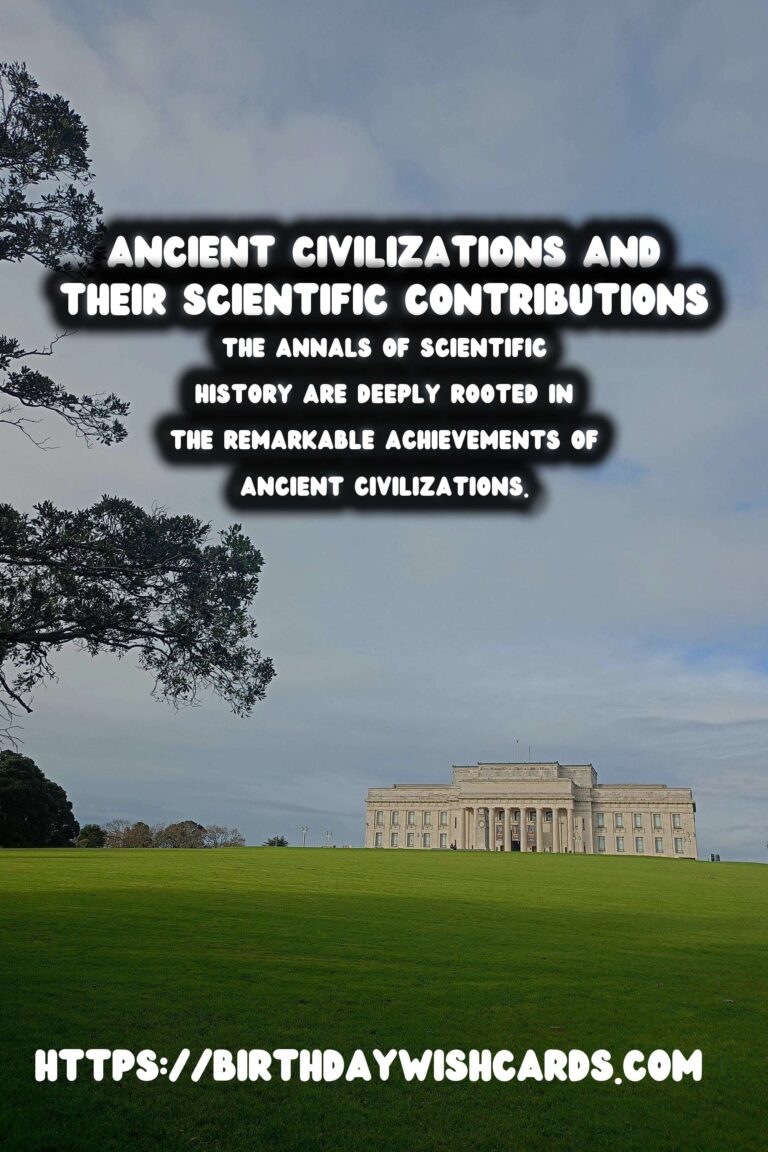
The annals of scientific history are deeply rooted in the remarkable achievements of ancient civilizations. From the towering pyramids of Egypt to the intellectual musings of Greece, the cradle of scientific inquiry was formed in these early societies. Their groundbreaking contributions in astronomy, mathematics, medicine, and engineering laid the foundational stones for the contemporary sciences we know today.
The Mesopotamian Marvel
Often regarded as the birthplace of civilization, Mesopotamia was a hotbed of early scientific thought. The Sumerians, known for their invention of writing, also made significant strides in the field of mathematics. They developed one of the first known numeral systems, which paved the way for complex calculations and commerce.
Babylonians took Mesopotamian mathematics further with the creation of the 60-minute hour and geometrical advancements. They were keen observers of celestial bodies, and their meticulous records led to the beginnings of astronomy. Using simple tools, they tracked planetary movements and eclipses, which later influenced Greek astronomy.
Egyptian Endeavors in Science
The ancient Egyptians, known primarily for their architectural prowess, were also accomplished scientists. Their medical texts reveal a deep understanding of anatomy and surgical techniques, indicating a surprisingly advanced practice of medicine.
In agricultural sciences, Egyptian innovations in irrigation were pivotal to sustaining their civilization. The invention of the shadoof, a hand-operated device for lifting water, allowed them to harness the Nile’s resources efficiently. Moreover, their knowledge in chemistry laid the groundwork for mummification, demonstrating early understanding of preservation techniques.
The Wisdom of Ancient Greece
Ancient Greece is often celebrated as the birthplace of Western philosophy and science. Thinkers like Pythagoras and Euclid revolutionized mathematics, providing structures that still underpin modern scientific inquiry. The work of Hippocrates in medicine established a tradition of systematic and empirical study, forming the cornerstone of today’s medical practices.
Philosophers such as Aristotle introduced methods of logic and reasoning that shaped scientific methods. His categorization principles contributed to a systematic approach to biology, which enabled more structured and thorough investigations.
Indian Insights and Innovations
In the Indian subcontinent, the contributions to mathematics, astronomy, and medicine were groundbreaking. The decimal system, including the concept of zero, was developed by Indian mathematicians. This numeral system is now essential to global mathematics and commerce.
Astronomy thrived with figures like Aryabhata, who proposed a heliocentric model of the solar system long before it gained acceptance in the West. His accurate calculations of celestial events stand as a testament to India’s advanced scientific understanding.
Chinese Contributions to Science
Chinese civilization made extraordinary contributions to the field of science, notably in technology and engineering. The invention of the compass and gunpowder had profound impacts on navigation and warfare, changing the course of history.
Chinese scholars applied scientific principles to medicine through traditional practices such as acupuncture and herbal remedies, emphasizing balance and prevention, a holistic approach that remains influential today.
Legacy of Early Scientific Endeavors
The scientific achievements of these ancient civilizations have a lasting legacy that continues to influence contemporary science and technology. By exploring the rich scientific tapestry woven by our ancestors, we gain a greater understanding of the world and the ingenious spirit that drives human progress.
As we reflect on these early scientific advancements, it becomes evident that the quest for knowledge is an intrinsic part of human nature. This journey through ancient science not only honors the past but also inspires future generations to push the boundaries of what is possible.
The annals of scientific history are deeply rooted in the remarkable achievements of ancient civilizations. From the towering pyramids of Egypt to the intellectual musings of Greece, the cradle of scientific inquiry was formed in these early societies. 
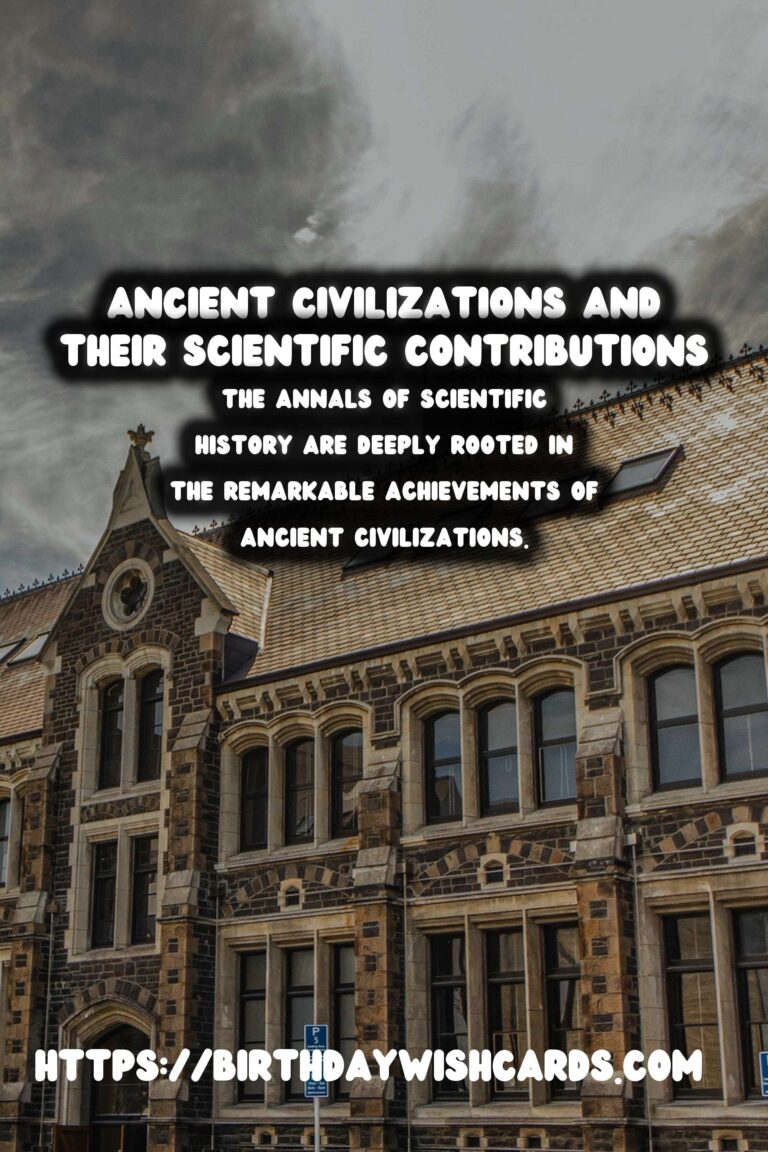

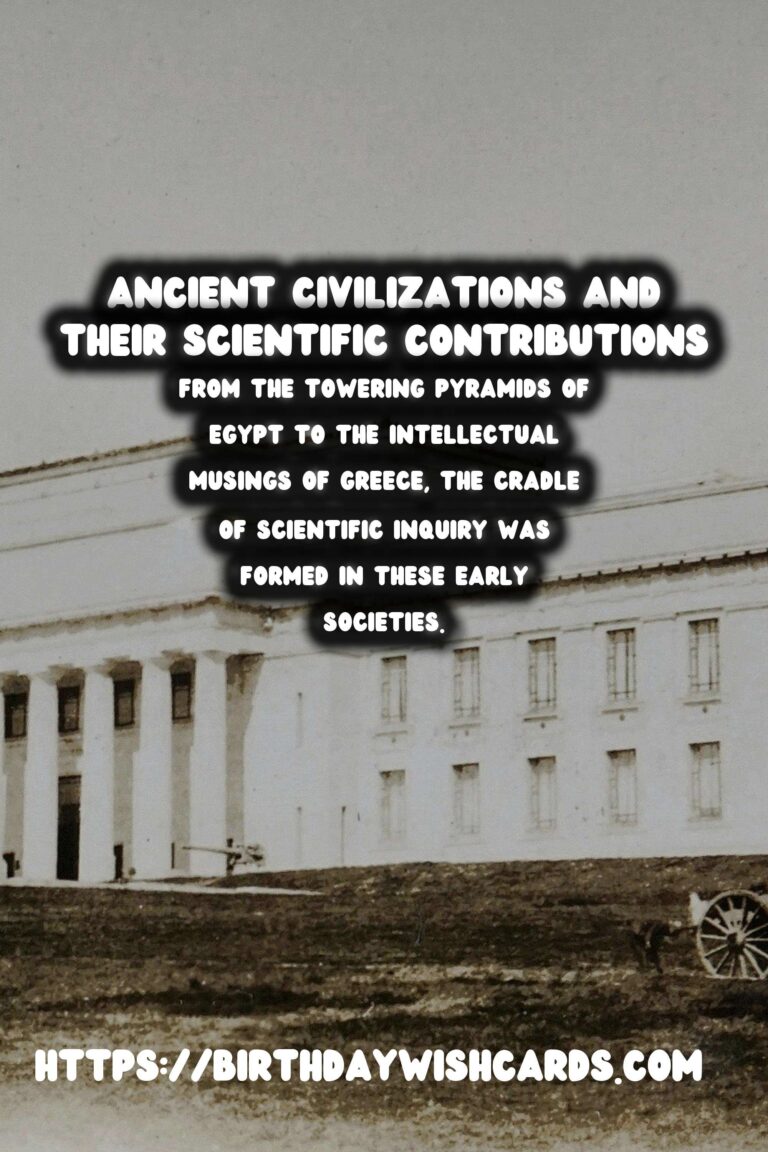
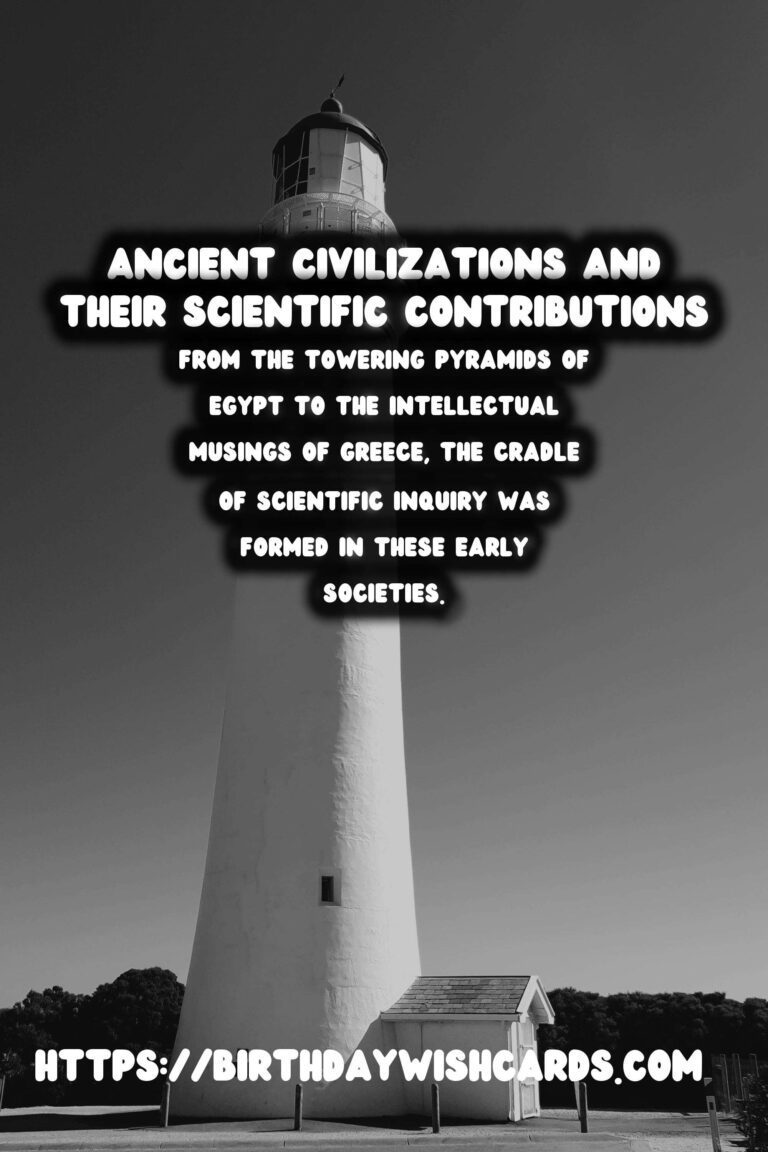
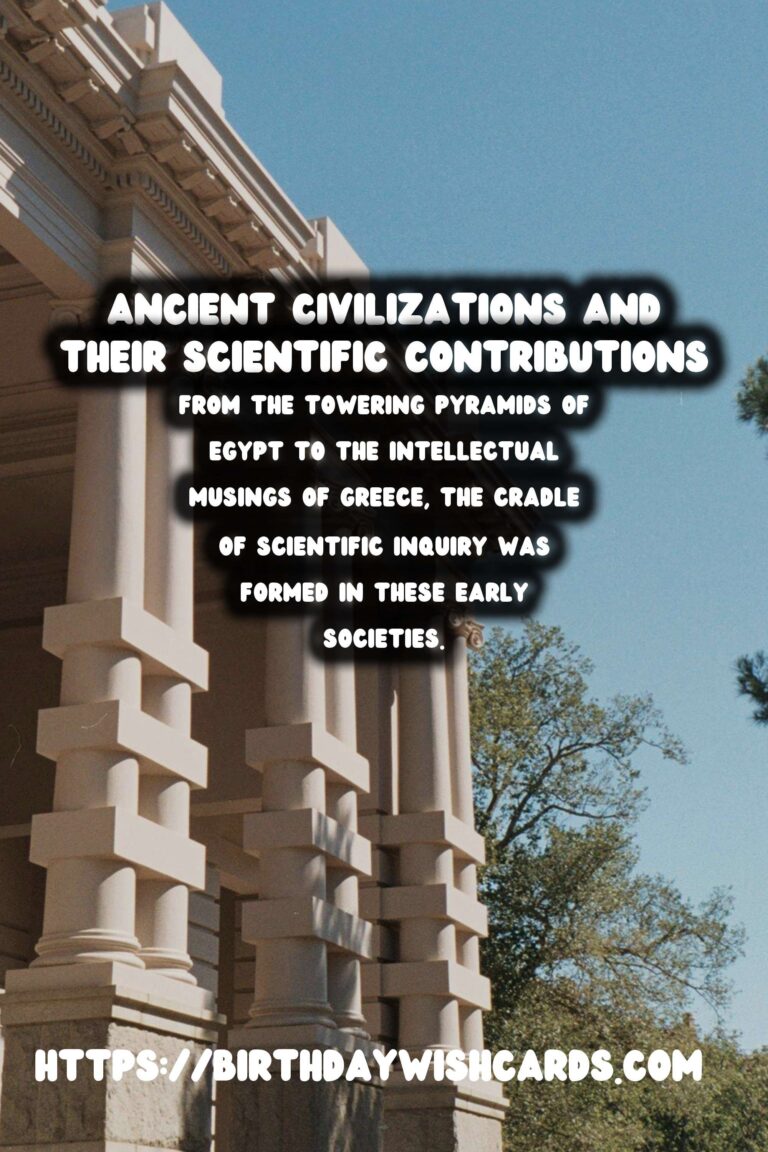
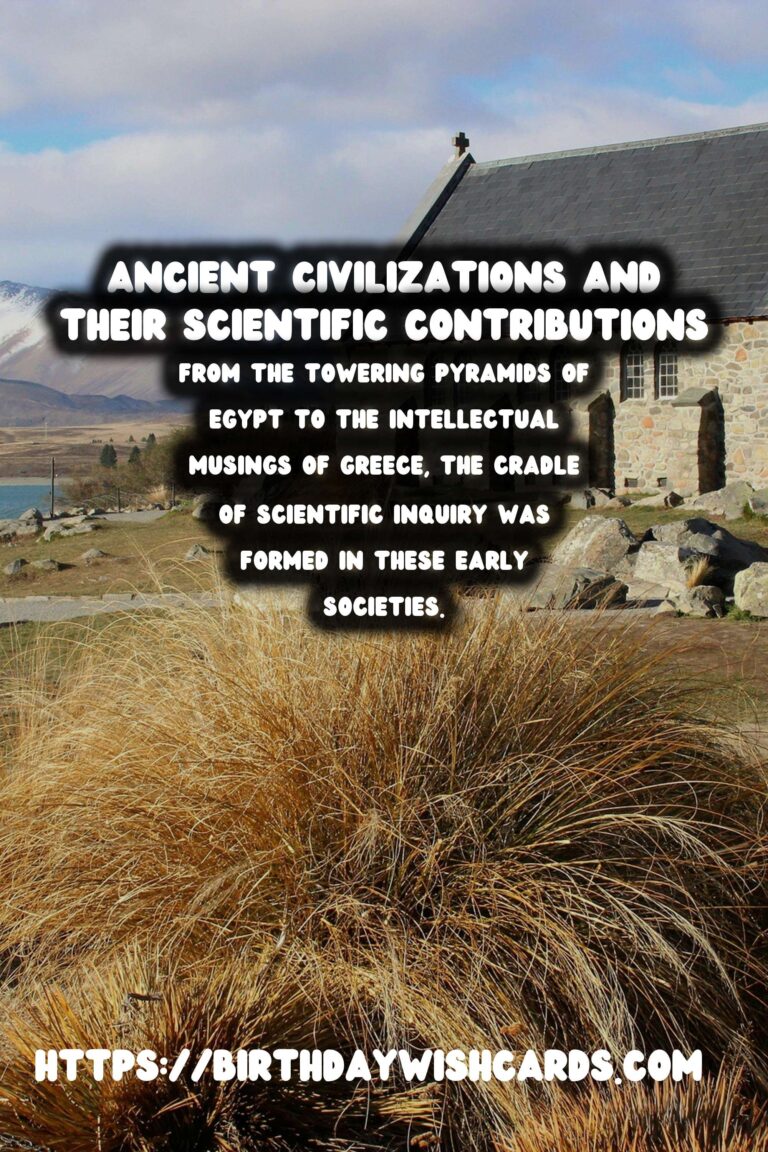
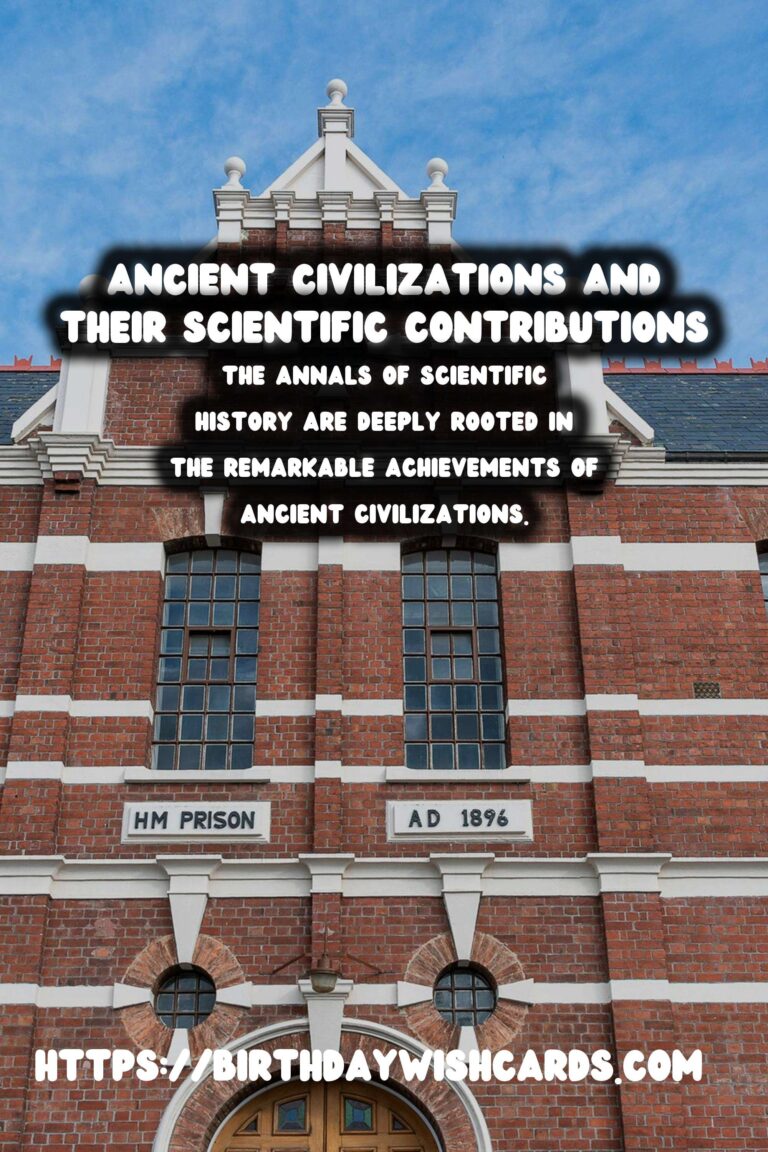
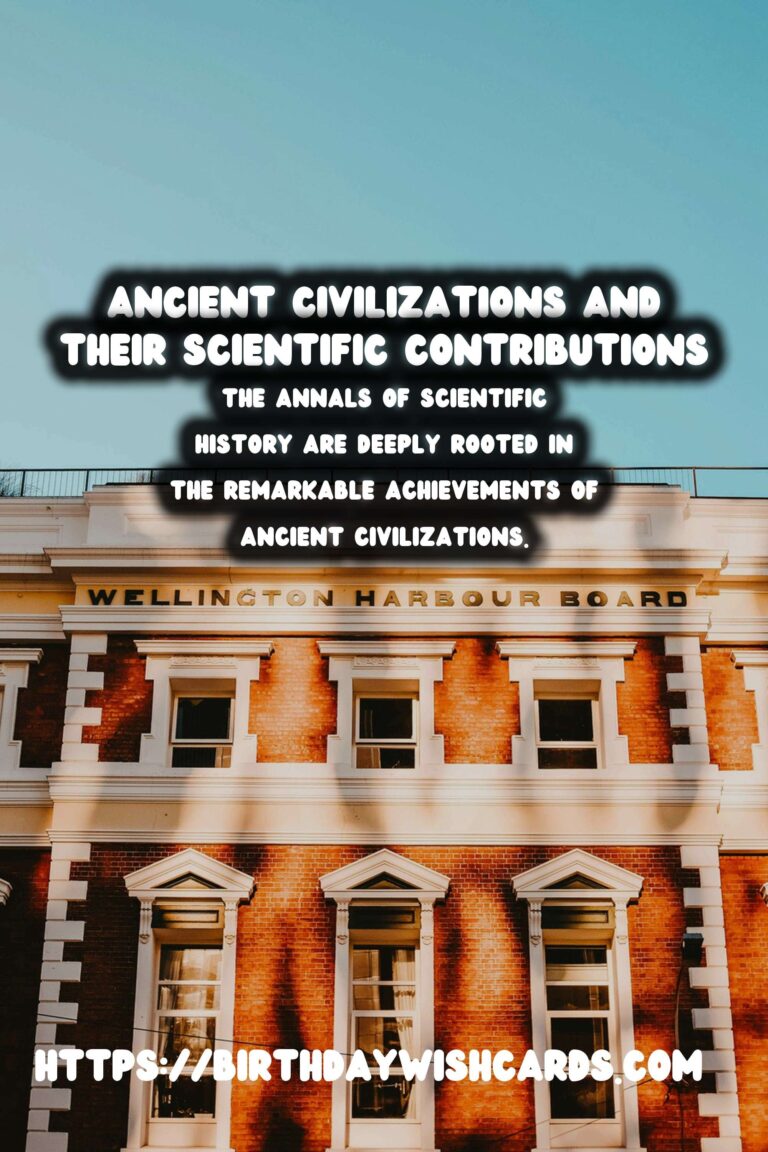

#AncientScience #HistoryOfScience




